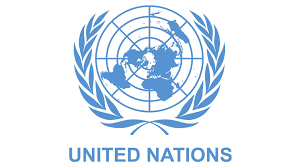The United Nations said Nigeria’s population growth is being hampered by unemployment and other economic challenges facing her young people. The UN Resident and Humanitarian Coordinator in Nigeria, Mohamed Malick Fall, in a message to mark the 2025 World Population Day, regretted that many young people in Nigeria are unable to achieve their desired family size, “not due to lack of aspiration, but due to financial hardship, lack of access to information and services, societal expectations and fear of stigma.”
Fall added that the girls, in particular, “are denied the opportunity to decide if, when, and how many children to have, because they are married too early, kept out of school, or lack access to contraception and youthfriendly services.”
According to him, Nigerian youths with vast potential, are still facing barriers that limit their choices, especially sexual and reproductive health. He, therefore, called for access to education and health services, gender equality, and creation of job opportunities “for decent work and livelihood” for young people.
Chairman of the National Population Commission (NPC), Nasir Isa Kwarra, noted that global population growth is slowing, with many countries now experiencing declining fertility rates and aging populations. Kwarra said this has been tagged “population collapse” in some parts of the world. He stated that the 2025 State of World Population Report has shown that young people across the world are not choosing to have fewer children simply out of preference.
“Rather, many are navigating difficult circumstances that influence their choices, such as uncertainty about the future, limited access to health services, quality education, employment, affordable housing and economic instability,” he said. The NPC chairman assured that Nigeria would continue to address these concerns with empathy, innovation, and data-informed solutions.
He stated that the dreams, potentials and aspirations of Nigeria’s population, which he put at over 60 per cent or over 130 out of the nation’s estimated 216.8 million, “must be placed at the very centre of our national development priorities.” Kwarra disclosed Nigeria is among the few countries with a youthful and growing population, adding however, that this presents the country with an opportunity. “If properly harnessed, this demographic structure can fuel innovation, productivity, and inclusive growth.
“But to achieve this, we must put the needs, voices, and aspirations of young people at the heart of our development agenda,” he stated. According to him, empowering young people is not charity, but a sustainable development strategy that requires that the nation should invest in her young people to harness the demographic dividend. “This means investing in quality education and skills development, sexual and reproductive health, including family planning, and good governance and ensuring youth participation.
“It also means investing in employment and entrepreneurship to provide decent jobs, as well as investment in data management, including ensuring compliance with the conduct of a population and housing census every 10 years to generate evidence to track the progress made on the national and sub-national development plans, as well as the Sustainable Development Goals,” he added. The theme for this year’s World Population Day is, “Empowering Young People to Create the Families They Want in a Fair and Hopeful World.”















